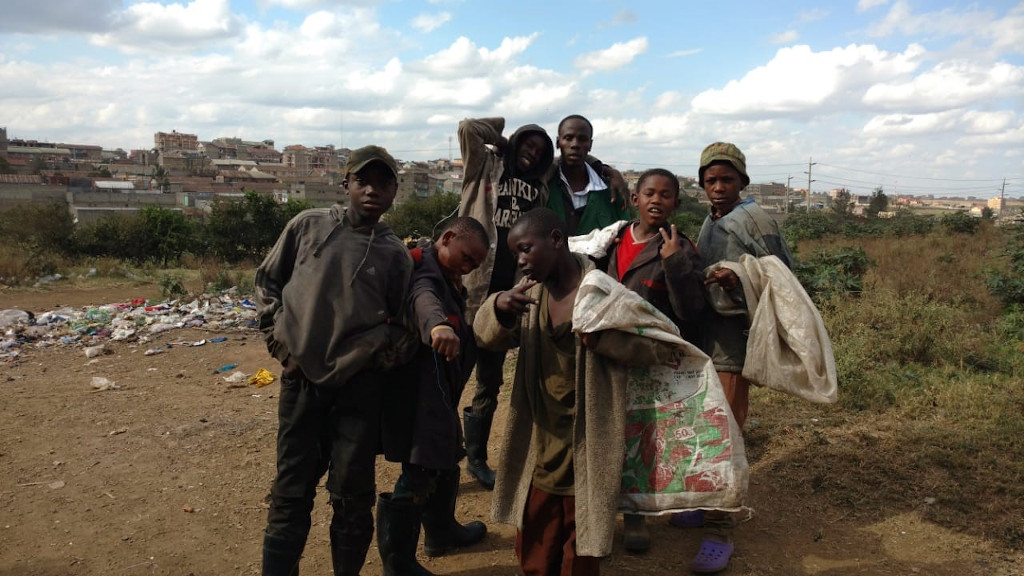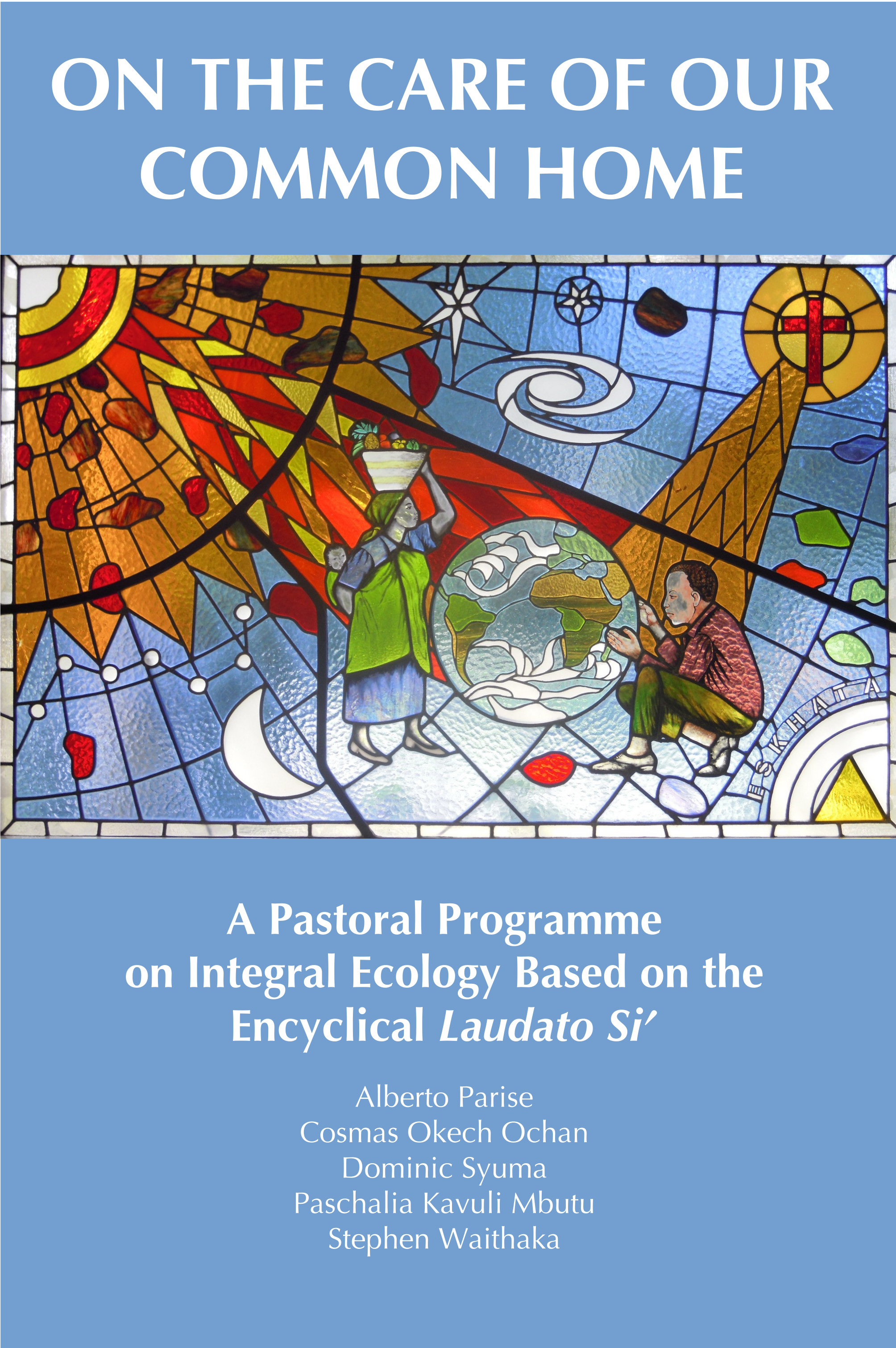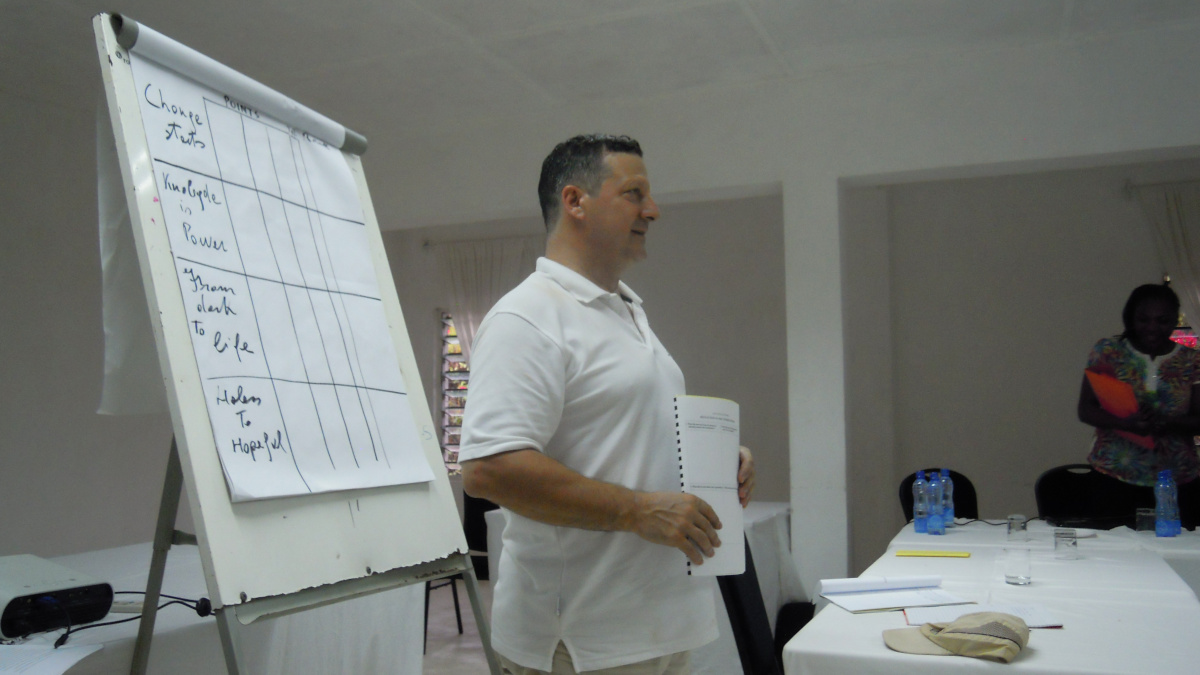This ministry allows us also to fully embody Comboni’s message of “Saving Africa with Africa.” All the staff of Napenda Kuishi, except for me, is made up by young Kenyans: men and women, several of them highly skilled and highly specialized. They devote their life, their energy and their professionalism to our teens and youth with daily love and care, even amidst many challenges and difficulties, helping them transform their lives, journeying with them and giving them love, hope and dignity, which is also our motto and our mantra.
OUR HISTORY AND BACKGROUND
The Comboni Missionaries established Napenda Kuishi Rehabilitation Program Trust in 2007 to answer the plight of street children in the slum of Korogocho, in Nairobi.
Started as a small children program operating out of a small facility in Korogocho, in the course of many years the project has developed into a fully-fledged rehabilitation program for teens and young men.
The shift from children to teens and young men was made in the year 2015 after a through social analysis of the reality of the slums surrounding Kariobangi, where as Comboni Missionaries we serve the Parish of Holy Trinity since 1973.
The results of the study highlighted the fact that in the slums of Korogocho, Mathare, Huruma, Dandora and beyond, -all in the area of parish of Kariobangi, many NGOs and private or government organizations worked and had programs for street children. The study also pointed out that in the recent years the biggest challenges were those faced by street teens and street youth, highly addicted to drugs, involved in criminal and gang activities and often being targeted by Police or vigilantes and thus often victims of extra judicial and /or mob justice, and easily radicalized by terrorists’ organizations. Furthermore, no organizations or NGOs had specific program targeting this age group giving the many problematics and challenges arising from interacting with teens and youth who find themselves too often on the wrong side of the law and heavily addicted to drugs and crime.
Because of their reality and their situations, these teens and youth were and are certainly the poorest and most abandoned among the people living in the streets.
For this reason, the Comboni Missionaries in Kariobangi opted to switch the activities of Napenda Kuishi Trust from street children (age 8 to 12-13) to street teens and youth age 14 to 20- 21.
At this point Napenda Kuishi had also to adapt and tailor its programs to respond to the new needs and challenges posed by the youth we serve now. For this reason, Napenda Kuishi, starting in 2016 has become a fully-fledged rehab program that incorporates serious and scientific approach to aid in the rehabilitation of our teens and youth.
In our rehabilitation Journey we follow the “12 step Narcotics Anonymous Program (an offspring of the 12 steps Alcoholic Anonymous Program) and the “just for today” spiritual approach. The program also uses the “Positive Reinforcement” approach and the psychological theories of Abraham Maslow with its “Hierarchy of Needs” and Carl Rogers who developed Abrahams’s approach to include an environment that guarantees openness, acceptance and empathy.
Today Napenda Kuishi Napenda Kuishi operates five different facilities:
- Three rehabilitation Centers: Boma Rescue Center and Kisumu Ndogo Center that are not-residential out-going patients centers and Kibiko Residential Home, a full spectre rehabilitation residential facility;
- The “Napenda Kuishi” Apartment, a half way home for teens ready to be reintegrated into society and who are in school;
- Daniel Comboni Vocational Training School, a vocational training school where teens who have completed their rehabilitation are trained and certified in Carpentry, Electrical Wiring, Welding, Plumbing and Masonry, and starting in 2022, Auto Mechanics.
OUR REHAB FACILTIES
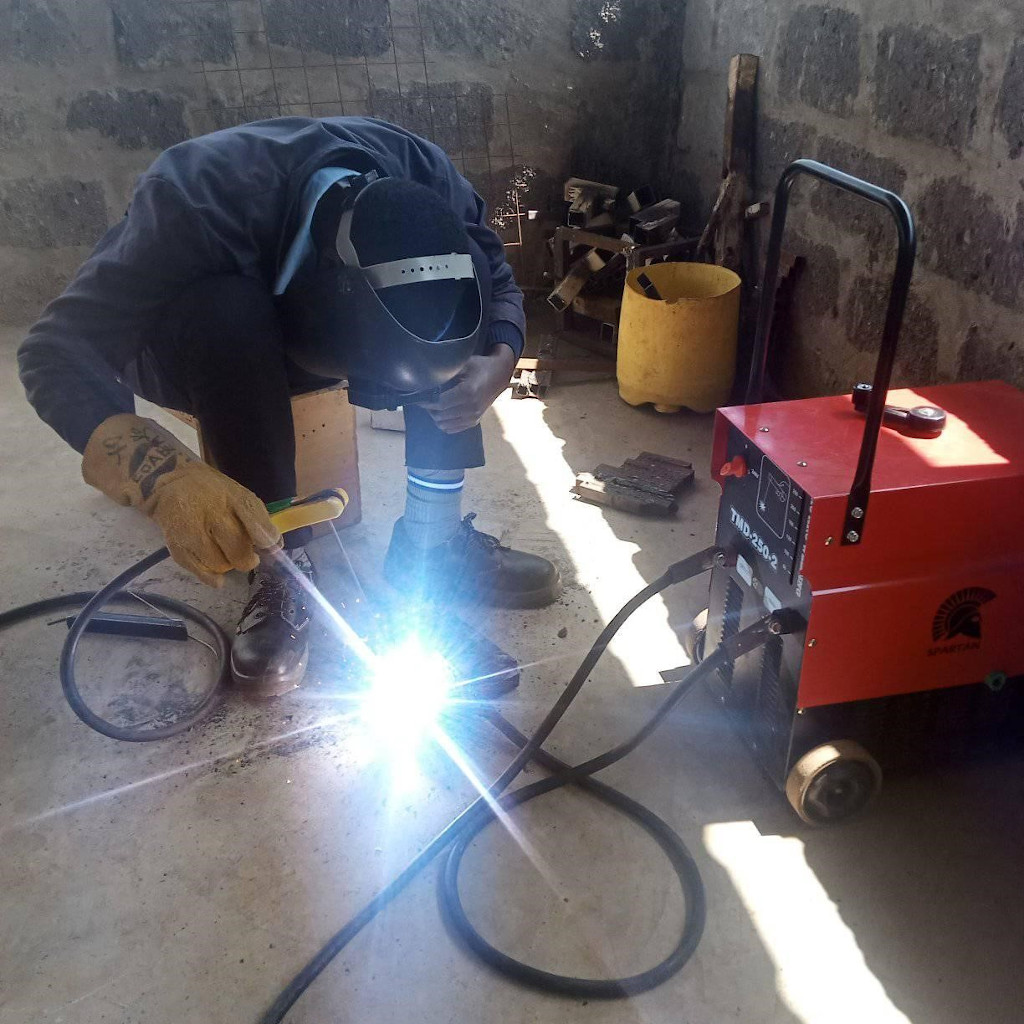
Kisumu Ndogo Center and Boma Rescue Center
In the day centers of Kisumu Ndogo Center and Boma Rescue, both in Korogocho, the activities are on a day out-patients modality. The teens and youth come -every day- from the streets and there the various activities and therapies take place. In this time, at the beginning of the experience, the teens and youth still live on the streets and thus come to the centers – as they are: high on drugs, violent, often sick and dirty, many times carrying knives. Slowly and with a lot of patience, the program and the therapies begin to change the youth. It also here that the family tracing takes place together with family therapies and reconciliation. By the month July, (the Program begins with a new group of teens every year in January) many of the teens have reconnected with their families in some way. The centers serve an average of 50 teens per center per day.
Kibiko Residential Home
The Home is located in Kibiko, near the town of Ngong. It is a fully equipped residential facility for rehabilitation of youth and street children referred here by our other two centers of Kisumu Ndogo and Boma rescue or from Government and/or county institutions. It is meant to house and work with the most difficult cases, where youth are heavily addicted, come from very challenging family realities and are victims of abuses. The Home allows its beneficiaries to be rehabilitated in a safe environment away from their normal urban environment where access to drugs and alcohol is easy. The guests are attended to by a team of counsellors and social workers who professional guidance and counselling, spiritual, moral and behaviour change programs. They work together with to the teens and at the end reintegrate them in formal learning institutions, in vocational training and ultimately, when possible, back to their families. The home has residential capacity of 30 youth.
The rehabilitation program last one full year and it includes individual and group counselling and various therapies aimed at the complete rehabilitation of our guests. The Spiritual life of our teens is nourished and developed as part also of their rehabilitation Journey. As stated above, the Rehabilitation Program follows the 12 steps Narcotics anonymous program (a derivate of the 12 steps Alcoholics anonymous Program) and use the Psychological Humanist approach develop by Abraham Maslow.
Kibiko Home also includes a 10 acres farm that, besides providing the grounds for occupational therapy activities, has cows, chickens, dogs, acres of cultivated land and a Green House.
Strategies and modalities of intervention in our rehab facilities:
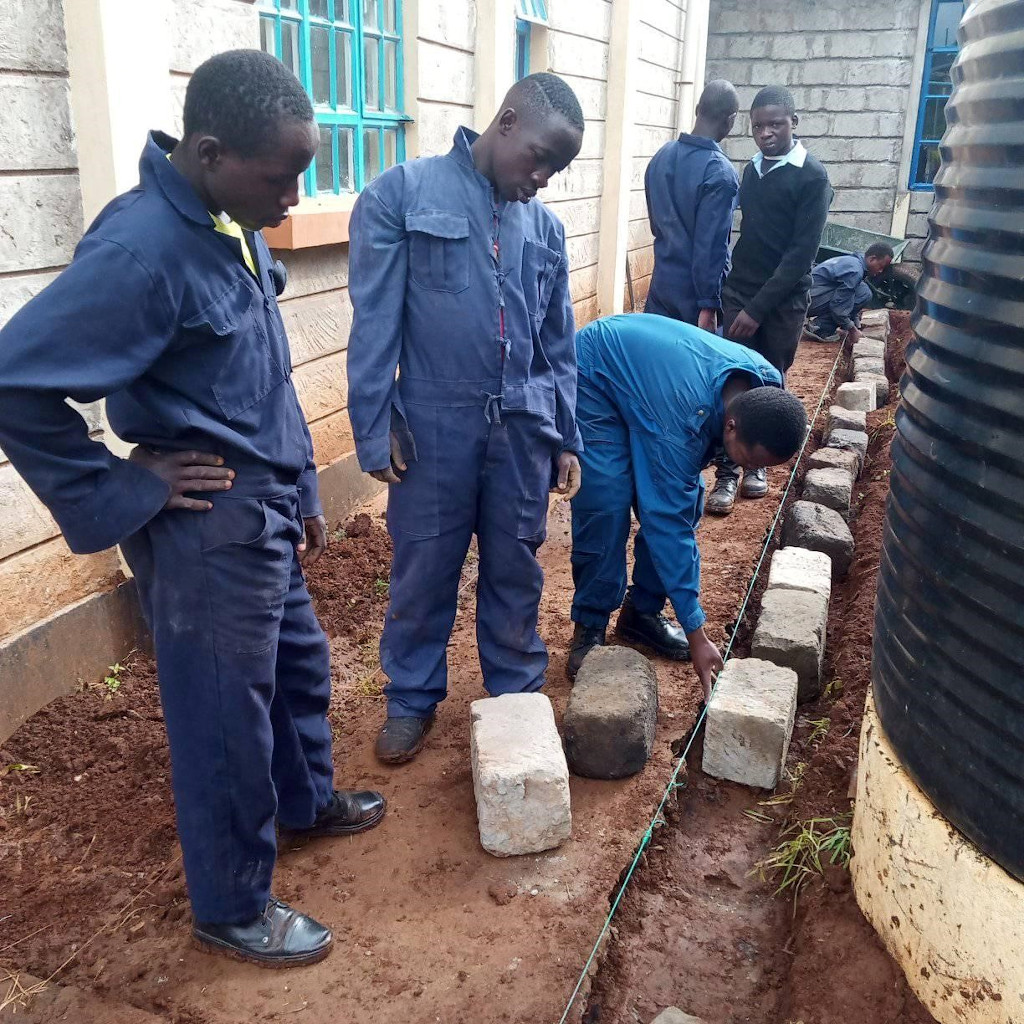
Our approach at Napenda Kuishi is that if building relationship with the teens and youth where they live: on the streets. There the relationships begin and the young men slowly begin to trust us. After that the teens and youth are invited to reach by themselves one of our day centers located in Korogocho: Kisumu Ndogo and Boma Rescue.
Our process of rehabilitation is modeled in a three-phase strategy, whereby vulnerable teens and youth are rescued from the streets and dumpsites, rehabilitated through a social worker-tailored programs and then re-integrated back, where possibly to their families, and then to school, vocational Training or apprentices’ placements. The three phases are:
- Rescue or and rehabilitation: at the beginning of each year, from January to March, the staffs (made up of social workers and professional counselors) are engaged in street work. Street work, on the roads and in Nairobi immense dumpsite, is the only way to interact with the youth living on the streets and to invite them to one of the two centers of Boma and Kisumu Ndogo. Once the teens are at the centers, the staff conducts multiple activities: Counseling, individual and group therapies following the 12 step Narcotics Anonymous program, informal education, sport therapy, spiritual formation, group counseling, work therapy, art and music therapy and most of all behavior modification therapies. The period of rehabilitation lasts one year, after which the teens are reintegrated in their families and schools or training. During their period in the Centers, the teens receive daily meals, which for many of them remain the only meal of the day. While the teens are in the Center, the staff organizes formation for their parents (when we find them) on responsible parenthood and entrepreneurship skills in order to help the parents run small scale businesses for their livelihood. The goal of the program is to operate in a one-year circle, from January to December when reintegration (or placement in the residential facility for the most difficult cases) is done.
- Reintegration: The reintegration phase is one of the most difficult tasks we undergo every year. First, we need to locate -where possible- the immediate or extended family of the teen or youth, then, after being located and properly counseled, again where possible, the family (immediate or extended) receive back their teens or youth. Reintegration phase means also to take the teens and young men to school or Vocational Training.
In all this process, it is important to involve the parents because this is an essential part of the whole process of rehabilitation. We understand rehabilitation in a holistic way: meaning, not only the phase of being in the Centers, but the complete transformation of the teens and of their families. That is why reintegration is so important: without a joint commitment of the part of the Centers and of the families, all the values that the teens and youth have internalized during his rehabilitation process and the new behavior the teen has embraced run the risk of being diluted as soon as the teen goes back to the family. Reintegration (to join a school, to settle within the family, to empower the family itself to be more responsible for the life of the child, etc.) is what makes rehabilitation possible and its fruits to last. The families are also asked, where viable, to contribute financially to the education or Vocational Training costs of their sons so not to create total dependency on Napenda Kuishi. For this reason, reintegration is something that we cannot renounce, in spite of financial difficulties, because if the families are not able or willing to welcome back their sons for who they are: former addicts and thus- fragile people- the family situation will collapse and the teens and youth will relapse and return to the streets.
- After care and Follow-up: once reintegrated both in the family and in the schools or Vocational Training, the staff continue to follows the teens in their schools, in their apprentice or in their Vocational Training to make sure that they continue in their – now independent, journey. This follows our core philosophy and belief that that teens and youth do not belong in Institutions but with their family, at school or vocational training, in a normal and happy life. As stated , our program do not last for more than 1 year (2 for the most difficult cases) as far as the rehabilitation phase: after the rehabilitation phase, all our teens are reintegrated- when possible- with their immediate family or extended family and their progress (academics, work related, life related) are monitored for the next three to four years following discharge from the rehabilitation facilities through regular visits to the families, the schools, the work places or the places of apprenticeship. To facilitate this process of reintegration, on several occasions Napenda Kuishi has offered our older teens who have completed our Vocational Training School small loans at no interest to help them start their own activity or business. So far, several teens have benefitted from these loans (some would call them micro-credit…) and all loans have been repaid in full and in a timely manner.
Napenda Kuishi is still growing…
In the past, one of the weak points and one of the most problematic was the “Exit Strategy” for all our teens. As we saw above, the program had among its strategies that of reintegration after rehabilitation, but for a variety of reasons, this aspect lacked a systematic and well-defined approach that could actually provide the teens and the youth with a well-defined, well organized and well-structured Exit Strategy. Keep in mind that most of the times we are now working with teens and youth well beyond school age or that have left school many years before. In addition to this, we encounter often a great number of teens and youth with no traceable family because of the many years spent away from them and without any contact whatsoever; teens whose families have completed severed ties with the youth and refused to reconcile; total orphans and at times teens and youth who were victims of family violence and abuses of any kind within the family itself.
For all these reasons and to answer the new upcoming needs of our youth – in order to better serve them, in 2018 we started our two newest centers: The Daniel Comboni Vocational Training Center and the Napenda Apartment.
- DANIEL COMBONI VOCATIONAL TRAINING CENTER: POST REHABILITATION AND REINTEGRATION INTO DAILY LIFE:
During our rehabilitation sessions and therapies, we have realized the importance of providing our youth with skills that will help their reintegration into society. We have in fact noticed how after their rehabilitation and for some of those who returned to school after rehabilitation even after finishing secondary school, many of our youth found very difficult to find jobs and thus support themselves and/or they families. We felt strongly the need and importance to provide our youth, especially the older ones, with skills and abilities that will allow them to find jobs and/or support themselves once they are completely out of our programs. Without definite skills and abilities, it is very challenging for our youth to support themselves and to enter into the job market.
Furthermore, without proper and marketable skills our youth will end up unemployed and with very little possibilities to find any suitable employment. In Kenya, youth unemployment is one of the major issues and the government itself is struggling to find solutions to this major problem.
Youth unemployment is also a social time bomb given the frustration of the youth and the high number of those who remain unemployed and on the streets.
With inputs and suggestions from staff members, former youth, the youth in the program and consulting other centers we realized that the best, most effective and immediate way to help them after their rehabilitation -and for many even after their graduation from High School – was that of providing them with technical skills. For this reason, thanks to the help of an NGO form Luxemburg, we have built a Vocational Training Center with carpentry, masonry, plumbing, welding and electrical workshops where the youth will receive proper training in the above skills so to be able to find employment after completing our Rehabilitation Program. The Center, called Daniel Comboni Vocational Training Center, is fully registered with the Government of Kenya and the Educational Government bodies in charge of Vocational Technical Training called TVET and NITA. At the end of their curriculum the students receive the Government certification and diploma according to the trade they have graduated. The Center is a college level school for Vocational Training and we are in the third academic year. As specificity, our training center, besides the technical trades (Carpentry, Electrical, Plumbing, Welding and Masonry and Auto Mechanics from 2022) we also offer our students courses in business administration, business management, basic accounting and entrepreneurial knowledge. Classes in the above subjects are an essential part of the curriculum. Worth noting is that 90% of our students are former street youth who have completed their rehab. In the Vocational Training the families of the students (when possible) are strongly invited to contribute to the support of the school by paying, at least in part, school fees. Napenda Kuishi is then responsible for the rest.
- E) NAPENDA KUISHI HALF WAY HOME APARTMENT: A STEP TOWARD INDEPENDENT LIVING
The apartment is located just outside the slum of Korogocho but in a safer and slightly better area called in Lucky Summer, in Kasarani. The apartment is for those teens who do not have families and have successfully completed their rehabilitation and are attending school or job training courses. It is a necessary step toward independent living for teens and youth with no family or very challenging family situations. It serves also for emergency situations of teens displaced, seriously ill or victims of abuse and/or violence. Here the teens live alone and independently under the supervision of the Management staff of Napenda Kuishi. The teens must organize themselves from everything concerned with the running of a house: from budgeting for shopping to cleaning and thus learn to live independently. The maximum capacity of the apartment is for 6 teens in two different bedrooms.
The concept and idea of the apartment is taken from the Half Way Houses common in USA for former addicts, former incarcerated or run-away teens. However, it goes a step further as our youth (all over 18 years of age) live alone but with rules and regulations intended to guarantee a smooth and efficient daily routine. The teens are monitored closely and must report regularly, however are left to live and manage the House by themselves. The experience is meant to last until the youth become able to find their own place and support themselves; the length varies according to the different teens and their personal situations.
So far, this experiment has proven very successful (also because of the detailed and strict regulations) and it has been taken as a model by the Nairobi Children office for possible future implementation by Government institutions.
BUT, WHAT ABOUT THE GIRLS…
At this point I am sure many are asking the question: “but what about street girls?”
In our slums the phenomenon of street girls is very much present even if not in the numbers registered for street boys. In our street work we often encounter them. Understandably the problematics and many of the challenges faced by street girls are different from the ones of boys and required a completely different approach.
While in many cases we make contact and provide emergency services to street girls, we are definitely not equipped to handle these cases in manner that will truly serve and benefit these young women. For this reason, we work with two other organization strictly specialized to work with street girls. After we have encountered and assessed street girls, we refer them to these two organizations who will provide for them with highly professional services and therapies and long-term care for their well-being.
BUT, WHY?
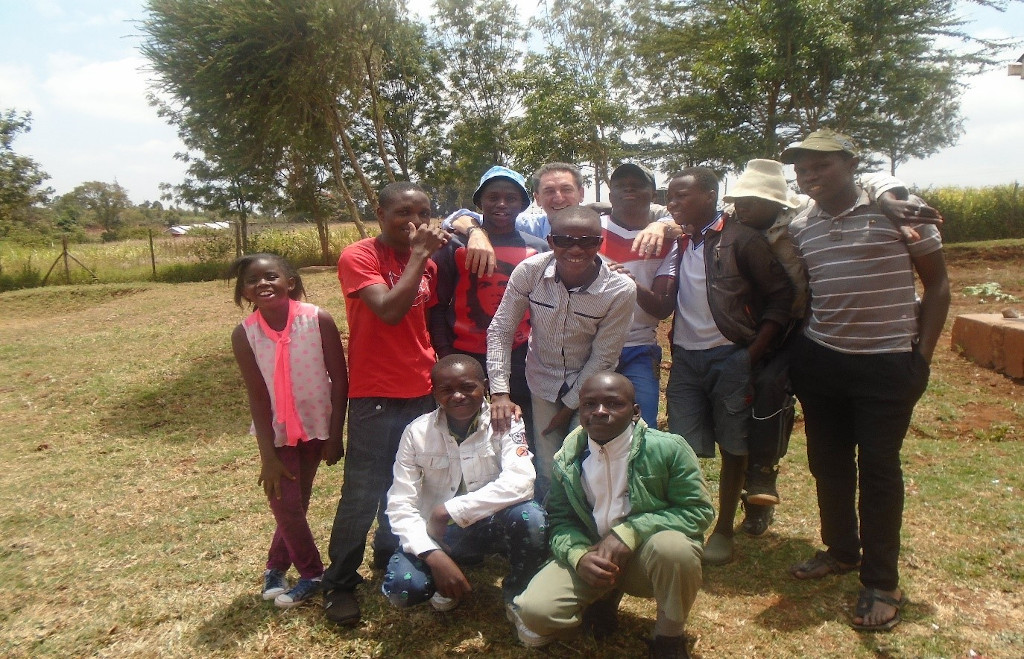
But why working with street teens and youth here in Nairobi? What this has to do with Evangelization?
The Comboni Missionaries in Kenya are truly committed to this program as a concrete way to live our Charisma of serving the poorest and most abandoned. In the slums here in Nairobi, these tens and youth are definitely among the poorest and most abandoned, not just because they live on the street and survive on what they can scavenge on the dumping site, but also because of the violence, abuse, discrimination and fear they experience daily.
While our teens and youth, “rediscover life” we journey with them in the rediscovery of their humanity and their being loved as God’s children of the Father who loves them tenderly.
In this wonderful journey we live to the fullness the Parable of the Good Samaritan:
– by helping them feel the loving touch of the Samaritan God who comes down to love them and to rescue them wherever they are and whoever they are, because they are not forgotten: God Loves them, God has not forgotten them.
– by given us the Grace as Comboni Missionaries of “being Neighbor” of those who are left on the side of the road and at the same time help them also to become “neighbors” to one another and to all those in need. The Grace and the privilege of Proclaiming the Good News to the poorest and most abandoned, here and now.
I am honored and privileged for having being entrusted by the Kenya Province of the Comboni Missionaries to serve here. I am blessed daily by the youth I encounter and the experience I live, I am thankful for this opportunity and bless blessed by the grace of being a Comboni Missionary serving among the poorest and most abandoned, here in Nairobi.
Please keep us in your prayers so we can continue to be Gods’ instruments serving our teens and youth and by proclaiming the Good News of God’s love and mercy to all the youth we encounter.
Fr. Maurizio Binaghi, mccj
To know more about us please check:
our web site: www.napendakuishitrust.org
Facebook: Napenda Kuishi
Facebook: Daniel Comboni Vocational Training Center
You Tube: Napenda Kuishi

